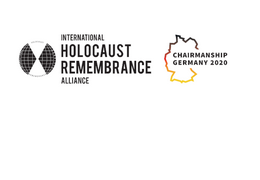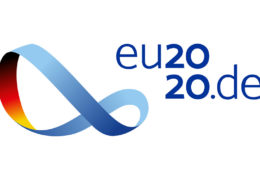As a group of Roma and pro-Roma scholars, politicians and civil society representatives from across Europe, we highly welcome the commitment of Germany’s Chairmanship of the International Holocaust Remembrance Alliance to support the adoption of a Working Definition on Antigypsyism by IHRA.
IHRA has demonstrated great efforts to advance recognition, research, remembrance and education about the Genocide of Sinti and Roma. An IHRA Working Definition on Antigypsyism can make an important contribution to combat this specific form of racism – which is deeply rooted in our societies for centuries – and its complex mechanisms and manifestations.
We express our strong concerns and baffled surprise that, after a long-lasting consultation process, IHRA intends to change the main terminology from “Working Definition on Antigypsyism” to “Working Definition on Anti-Roma Racism” just shortly before the planned adoption of the working definition.[1] We ask IHRA to instead recognize and build on the work that has been done, especially by many Romani organizations and scholars for over two decades, all across Europe and the US, in order to advance the recognition of antigypsyism as a specific form of racism. It would give a highly irritating signal to all the institutions from both governmental and civil society level if these efforts are not only ignored but declared worthless and counterproductive.
The struggle for a recognition of antigypsyism as a specific form of racism
Romani civil society and scholars have been at the forefront for decades in the fight against antigypsyism, which is at the core of our civil rights struggle for equality of rights for Roma, for equal participation, and for a society free of racism. For over two decades there has been a gradual process to deepen the understanding of antigypsyism, to analyze its mechanisms and manifestations, and to find and negotiate a working definition. While there are already definitions of racism, such as by the UN Committee for the Elimination of Racial Discrimination, IHRA will be able to advance with this working definition a common understanding of antigypsyism and its broader implications to offer policy-makers, administrations, judges, educators, media and other stakeholders a clear guidance to identify incidents and structural mechanisms of antigypsyism.
The term “antigypsyism” has been used in English at least since the 1980s by the eminent US-American Romani scholar and activist Ian Hancock, and has become more and more recognized by Romani[2] and pro-Roma scholars and organizations as well as by mainstream political institutions ever since. The European Parliament recognized antigypsyism as a specific form of racism in 2015[3], and called upon the Commission and Member States in its 2017 resolution to adopt and apply a Working Definition on Antigypsyism.[4] After a first proposal for a working definition by the European Commission against Racism and Intolerance (ECRI) of the Council of Europe from 2011, the Alliance against Antigypsyism[5] – with the support of over 100 Romani and pro-Roma organizations from across Europe – proposed a clear working definition in 2015 and contributed to advance a deeper understanding of the exclusionary and structural mechanisms of antigypsyism. Not only have many resolutions[6] of the European Parliament addressed antigypsyism, but also the key policy documents of the European Commission defined the fight against antigypsyism as a priority.[7] The EU High Level Group on combating racism, xenophobia and other forms of intolerance issued in 2018 a guidance paper[8] on combating antigypsyism, and the Austrian EU Presidency[9] convened a large international conference on combating antigypsyism with wide Romani participation leading to a key set of recommendations. The Council of Europe Committee of Ministers adopted the Strategic Action Plan for Roma and Traveller Inclusion 2020-2025[10] with combating antigypsyism as a key priority. The UN adopted already in 2015 a report on the human rights situation of Roma worldwide with a specific focus on antigypsyism.[11] In 2016, the German OSCE Chairmanship hosted with OSCE-ODIHR and partners a high-level event on confronting antigypsyism and the role of majority societies.[12]
The debate about terminology
We recognize that language evolves and terminology may vary in different countries and languages. The international working definition of antigypsyism or anti-Roma racism is not only a matter of the context and notions in a specific, native English-speaking country, as English is recognized as the common language of Europe and the International Organizations. While the IHRA Working Definition and the terminology on antigypsyism needs to be translated into many languages, taking into account the national context and discourses – including in English-speaking countries – we highly recommend that the international Working Definition recognizes the term antigypsyism.
This letter cannot extensively analyse all differences and commonalities of the terminologies “antigypsyism” and “anti-Roma racism”, which can be found in many published papers.[13] We understand that with the use of “anti-Roma racism” your intention is to put Roma – who are mostly affected by this specific form of racism – at the centre of attention, and to avoid using the stigmatizing, racist notion “gypsy” in public discourse. However, “anti-Roma racism” does not explain and cover the complexities of the mechanisms and manifestations of antigypsyism, the first of which is precisely the fabrication of the imagined social category of “gypsies”.
Furthermore, the endonym “Roma” is free, so far, from any negative meaning whenever it refers to the ethnic identity of Romani people in all their social diversity. Thus, the expression “anti-Roma racism” induces the idea that this racism targets Romani people as such, and not as a category of people stigmatised and amalgamated with other non-Romani individuals or groups by external observers under many different names in different languages. Such an approach can also lead to a false understanding where racism against Roma is differentiated from racism against, e.g., Balkan Egyptians or other groups that do not self-identify as Roma, thus ignoring the roots, extent and manifestations of this racism which lay in the perception of the majority societies. The terminology thus falls back behind a crucial understanding of prejudice that IHRA showcased with its adoption of the working definition on antisemitism, that it is a “certain perception of Jews” that can be “directed toward Jewish or non-Jewish individuals”.
The value of the terminology “antigypsyism”
Antigypsyism is the specific racism towards Roma, Sinti, Travellers and others who are stigmatized as ‘gypsies’ in the public imagination by majority societies. There is no doubt that we fully support the claim of Romani people – to whom many of us belong – to be able to self-define and self-identify with the names that we know and use since centuries. The use of “antigypsyism” in English with its equivalents in other languages does not affect this fundamental right; on the contrary, the deconstruction of this form of racism will show how it associated an ethnic identity to the social identity of an unwanted group. In this respect, “gypsy” is the equivalent of “tigan”, which meant “slave” in the Romanian principalities of Moldova and Wallachia where Roma were maintained in slavery from 1385 to 1856. Using the term “antigypsyism” allows to critically analyze the history and patterns of oppression by considering different historical forms such as slavery, expulsion from cities, “gypsy hunts” and other attempts to exterminate those labelled as “tigan”/”gypsy” long before these practices were named with terms such as racism or genocide. Nazi politics put this power of definition by the oppressors to a new extreme, with certificates of racial belonging written for every person, suspected to be ‘Zigeuner’, as a basis for extermination.
Not only was the Genocide of Sinti and Roma denied and ignored for decades following the Second World War, but also this specific form of racism is often denied up to this day, which has allowed societies and institutions to justify exclusionary policies and even to blame Roma for the misery that they suffer. The increasing recognition of antigypsyism in recent years has led to an important turn of perspective: Antigypsyism is not a ‘minority issue’. It is a phenomenon of our societies, which has its origin in how the social majority views and treats those whom they consider ‘gypsies’. To combat antigypsyism, our attention and the responsibility needs to shift to mainstream societies and institutions, while raising the voices of those who are dramatically affected by antigypsyism, but also usually silenced by it.[14]
This approach and understanding allows us to identify and combat many hidden and structural mechanisms and manifestations of antigypsyism, in particular in the public discourse, in media and cultural productions, and in institutional behavior.
The world today is again facing a new wave of nationalism, antigypsyism, antisemitism, islamophobia and racism. Historical remembrance is always a lived responsibility for the present and the future. When we remember the crimes of National Socialism and the genocide/Shoah today, we must simultaneously defend the rule of law and democracy.
We strongly encourage the International Holocaust Remembrance Alliance to build on the efforts of many stakeholders in the last two decades, and to take this important work forward through the adoption of the “Working Definition on Antigypsyism”.
Footnotes
[1] IHRA President’s Statement on the Working Definition of Anti-Roma Racism (03.07.2020)
[2] see e.g. Valeriu Nicolae (2006): Towards a Definition of Anti-Gypsyism
[3] European Parliament resolution of 15 April 2015 on the occasion of International Roma Day — anti-Gypsyism in Europe and EU recognition of the memorial day of the Roma genocide during World War II (2015/2615(RSP))
[4] European Parliament resolution of 25 October 2017 on fundamental rights aspects in Roma integration in the EU: fighting anti-Gypsyism (2017/2038(INI))
[5] Alliance against Antigypsyism (2015): Reference Paper on Antigypsyism, https://www.antigypsyism.eu/
[6] European Parliament: resolutions of 2015, 2017, 2019; 2019 EP commissioned study; 2018 ICM Meeting
[7] European Commission: EU Roadmap (Feb 2020); EC Communication 6.9.2019; EC Communication 4.12.2018
[8] EU High-Level Group (2018): https://ec.europa.eu/newsroom/just/item-detail.cfm?item_id=51025
[9] Austrian EU Presidency (2018): Conference on anti-Gypsyism
[10] Council of Europe (2020): Strategic Action Plan for Roma and Traveller Inclusion 2020-2025
[11] UN General Assembly (2015) A/HRC/29/24: Comprehensive study of the human rights situation of Roma worldwide, with a particular focus on the phenomenon of anti-Gypsyism
[12] OSCE (2016): Confronting anti-Gypsyism is responsibility of mainstream society, needs strong political leadership, say participants at OSCE Chairmanship event, OSCE press release.
[13] see among others: End, Markus; Cortés Gómez, Ismael (ed.) 2019: Dimensions of Antigypsyism; Carrera, Rostas, Vosyliute (2017): Combating institutional anti-gypsyism. Responses and promising practices in the EU and selected Member States
[14] Alliance against Antigypsyism: Reference Paper on Antigypsyism, https://www.antigypsyism.eu/. and: Recommendations to combat antigypsyism in future EU and national policies.






